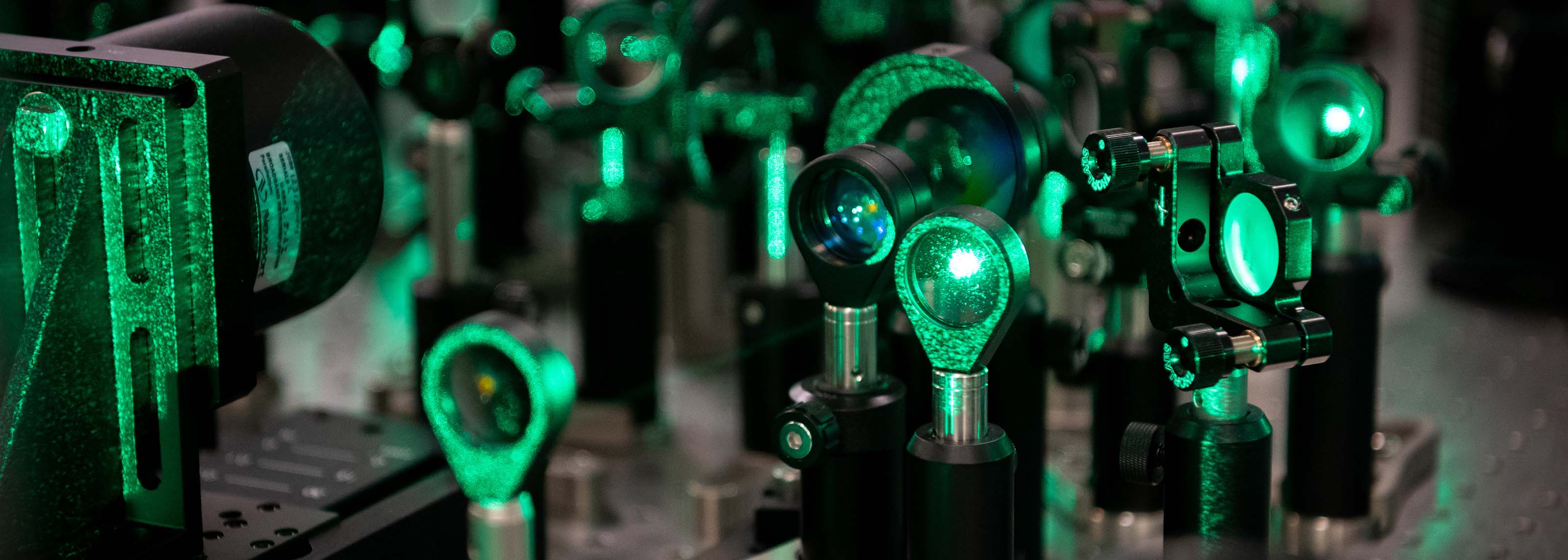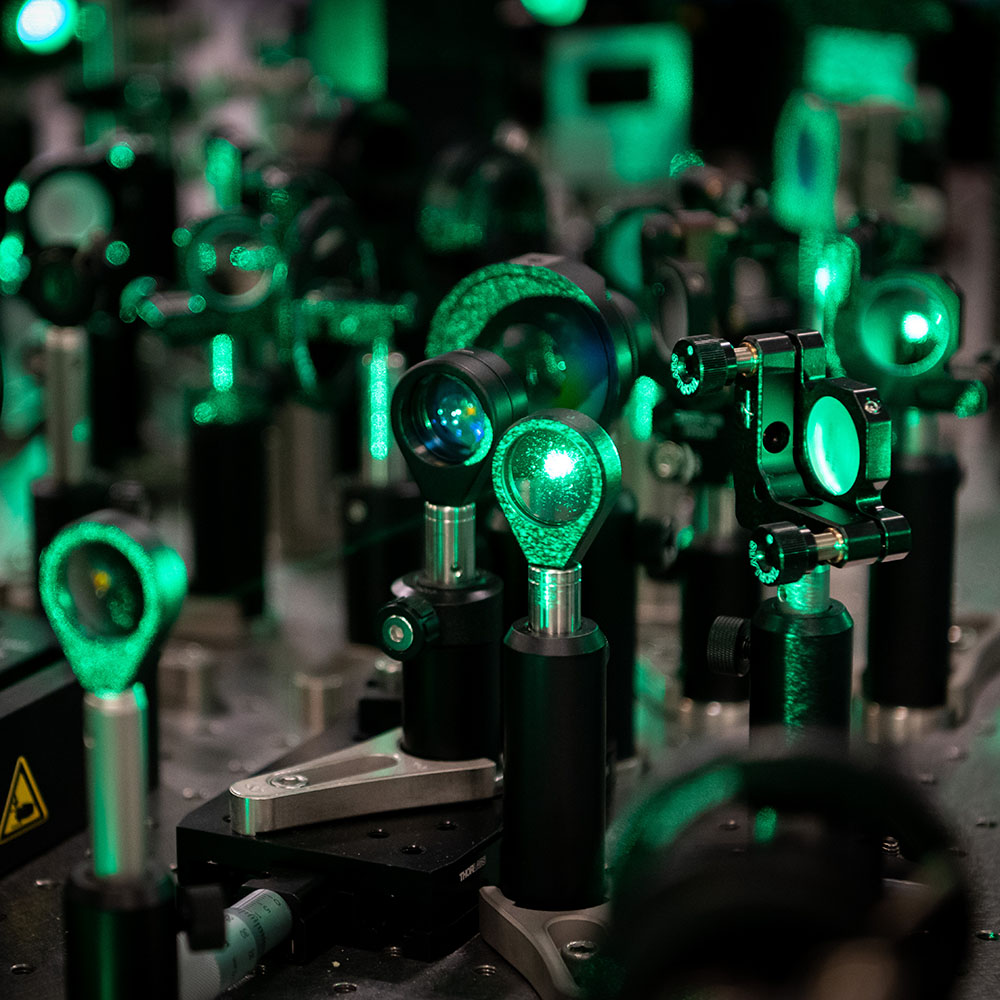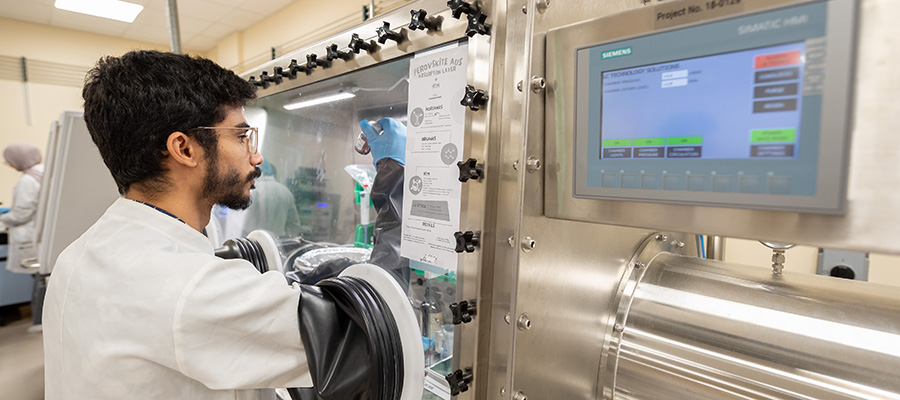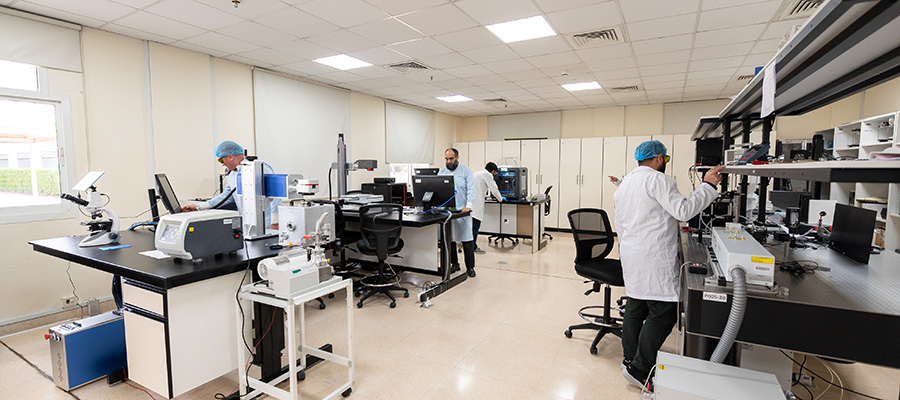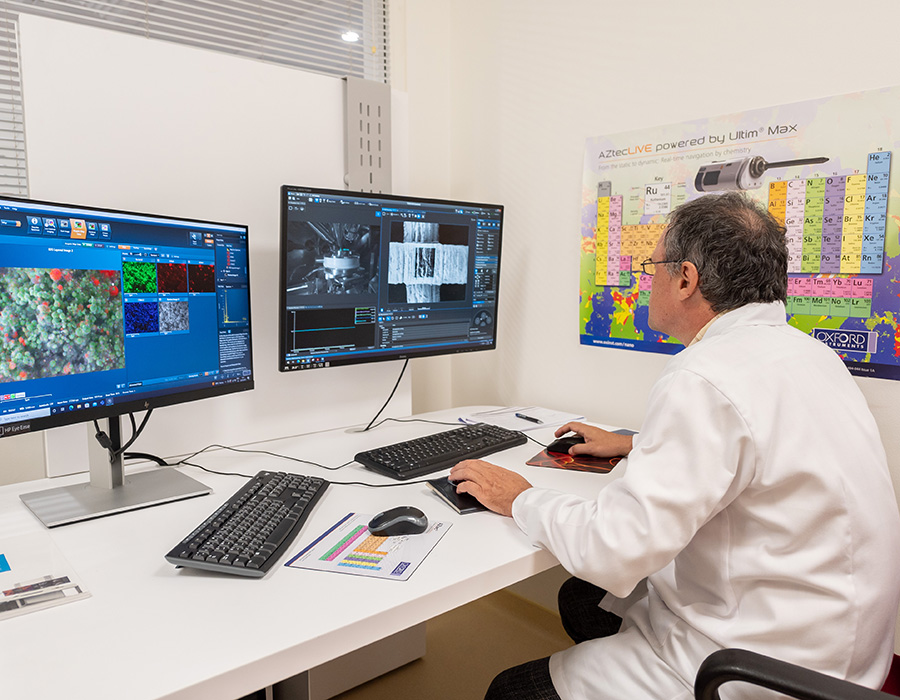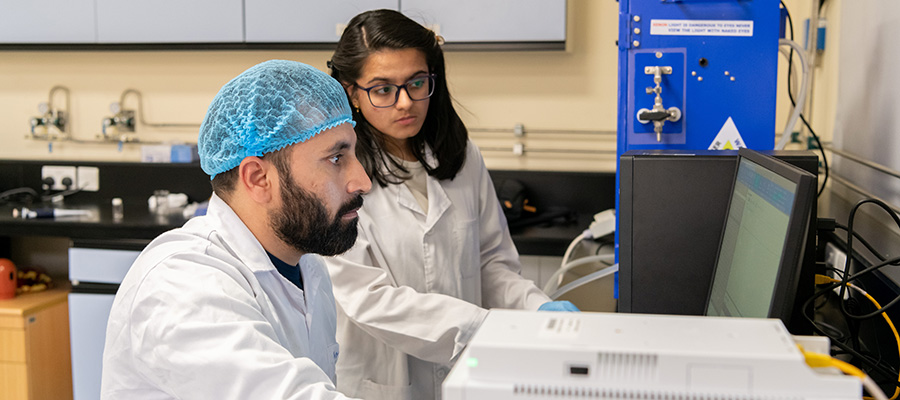Hosted by the AUS College of Arts and Sciences (CAS), the Materials Research Center (MRC) nurtures and promotes groundbreaking interdisciplinary research and education activities in the field of advanced materials and sustainable structures. The center focuses on providing novel solutions and developing highly skilled human resources that are critical to the UAE’s economic growth, particularly as it transitions from a petroleum-based economy to a diversified knowledge-based economy.
MRC combines science disciplines and various branches of technology to discover new solutions in the energy, environmental, healthcare and construction sectors. Our faculty members are actively contributing to diverse areas of research across the fields of materials science and engineering , all of which lead to technological advancements and finding novel solutions for sustainability, surface engineering and 3D printing, as well as in developing smart materials, and advanced composites with enhanced characteristics.
The research center is also committed to supporting current PhD programs, particularly the PhD in Materials Science and Engineering program, where students are immersed in cutting-edge dissertation projects aligned with our focus areas.
Mission
The mission of MRC is to unlock the potential of materials research, providing novel solutions and cultivating a league of highly skilled individuals vital to the UAE's economic growth. As the nation makes a strategic shift from a petroleum-based economy to a diversified knowledge-based one, MRC stands at the forefront, committed to shaping the future.
Objectives
MRC is dedicated to advancing its mission by actively catering to a comprehensive set of goals and objectives:
- Assemble and sustain a productive community of materials research scholars.
- Develop and maintain state-of-the-art infrastructure for materials research and education.
- Support collaborative projects on materials research by providing skilled personnel and continuous improvement of research resources.
- Provide novel solutions and develop highly skilled human resources that are critical to the UAE’s economic growth, particularly as it transitions from a petroleum-based economy to a diversified knowledge-based economy.
- Provide community and consultation services for governmental and industrial partners.
- Seek and nurture collaborations within and outside AUS by pursuing promising focused research themes.
- Promote the visibility and impact of the center to both internal and external stakeholders by organizing and participating in international workshops and conferences.
MRC Labs
MRC is supported by a solid infrastructure of laboratories that facilitate our research. The key components of this support include:
- Fabrication Laboratories
These labs house cutting-edge equipment such as high-power femtosecond multifunctional laser systems, pulsed laser deposition systems, nanosecond lasers, ultra-high vacuum chambers and more. They enable the synthesis of nanoparticles and quantum dots with tailored properties using femtosecond and nanosecond lasers. The labs also feature various furnaces, alloy fabrication equipment, metal 3D printer and deposition systems for producing ultrathin films and coatings.
- Materials Characterization Laboratories
Equipped with state-of-the-art instruments, these labs facilitate research in energy, environment and nanoelectronics. Instruments include the Physical Property Measurement System (PPMS), UV-VIS-NIR Spectrometer, Raman Microscope, X-Ray Diffractometer, High-Resolution Scanning Electron Microscopes (SEM) and more. These tools allow researchers to analyze and test materials at microscopic and macroscopic levels.
- Analytical and Computational Materials Modelling Research Facility
This facility plays a crucial role in materials and structural research through computer workstations and specialized software. Modeling and data simulation tools like COMSOL, Atomistix toolkit, Nanohub, ANSYS, ABAQUS, Amsterdam Modeling Suite and Density Functional Theory (DFT) software packages (VASP, Quantum Espresso, WIEN2k) are utilized to accelerate product development and enhance understanding of materials and structures.
- Structures and Construction Laboratory
This laboratory focuses on destructive and non-destructive testing of construction materials. It provides facilities for testing structural components under static and cyclic loadings, covering beams, columns, slabs, trusses and their assemblies.
- Chemical Analysis and Synthesis Laboratories
These labs feature modern instruments for the synthesis and surface characterization of organic and inorganic compounds. Instruments include Fourier-Transform Infrared Spectroscopy (FTIR), UV- VIS and Atomic Absorption Spectrometers, Gas Chromatograph (GC), High-Performance Liquid Chromatography (HPLC) and more, supporting research in catalytic, environmental and energy applications.
To request support from MRC facilities, please submit this form.
Research Themes
The current specific research projects that stand to significantly benefit from funding MRC encompass the following focal areas:
- Ultrafast Laser Spectroscopy and Advanced Materials Processing
This area focuses on ultrafast laser spectroscopy and laser material processing to synthesize advanced materials and nanostructures. Applications include catalyst development for green hydrogen production, and CO2 reduction and capture, among many others.
- Functional Magnetic, Superconducting and Electronic Materials
This area aims to develop functional materials with magnetic, superconducting and electronic properties suitable for diverse applications.
- Metals, High/Medium Entropy Alloys and Shape-Memory Alloys
Research in this domain is centered around the development of metals, high/medium entropy alloys and shape-memory alloys, with applications spanning health care devices, aerospace, and civil engineering and infrastructure.
- Advanced Coating Techniques
This area seeks to advance coating techniques for corrosion protection, solar cell enhancements and sensor development, and more
- Functional Organic Polymers
Focusing on electrode/electrolyte interfaces, this research involves the development of functional organic polymers that can be utilized in energy and environment applications.
- Metal 3D Printing
Within this initiative, metal 3D printing is employed to craft structures applicable to both biomedical and aerospace sectors.

